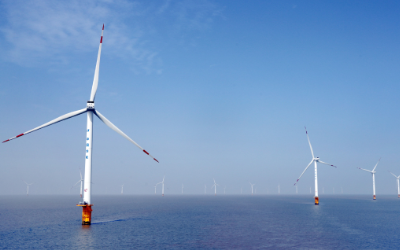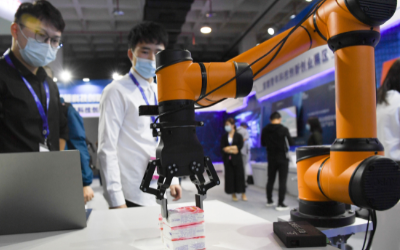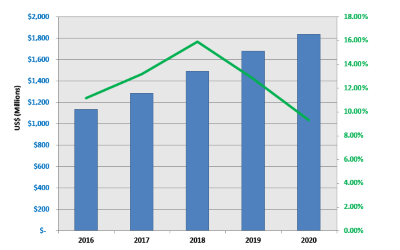Lenovo banks on better digital infrastructure for momentum
Beijing-based PC maker steps up tech efforts to cultivate new growth drivers
Chinese tech heavyweight Lenovo Group Ltd has begun to expand its position in smart internet of things devices and digital infrastructure in its fiscal year beginning April 1. It maintained its position as the world's largest personal computer maker in the first quarter amid surging demand from remote working and studying practices resulting from the pandemic.
The moves coincide with the Beijing-based company's push to cultivate new growth points by quickening digital transformation.
Yang Yuanqing, chairman and CEO of Lenovo, said the company will become a "computing company" with a "3S" strategy, referring to expansion in smart internet of things, smart infrastructure and smart application of information technologies in a wide range of sectors.
Eager to capitalize on its service-led transformation growth opportunities, Lenovo brought together service and solution teams and capabilities from across the company to form a dedicated organization-the Solutions& Services Group-which got to work on April 1.
The move came after Lenovo announced record revenue of $17.2 billion in the October-December period, marking a 22 percent year-on-year jump, on the back of strong growth in its personal computer, digital transformation and other businesses.
This was also the second consecutive record-breaking quarter for Lenovo, which said its innovative product portfolio has been adapting quickly to meet work, study and leisure requirements amid a rapidly changing world, while transformation investments continue to drive new long-term growth opportunities.
Looking ahead for the recently begun fiscal year, Lenovo aims to be the leader in all segments of the global personal computer market.
Yang called on the company's PC business unit to further boost sales while maintaining its industry-leading profitability.
With the growing demand for remote working and online learning, global PC sales jumped 55 percent year-on-year in the first quarter. Lenovo's global PC market share reached 24.7 percent, ahead of HP, Dell and Apple, market research company Canalys said in a recent report.
Lenovo said challenges will continue this year, including ongoing geopolitical uncertainties, component supply shortages resulting from strong demand and the COVID-19 pandemic.
But as a global company operating in 180 markets and with more than 30 manufacturing sites around the world, Lenovo said its outlook for 2021 remains positive. The new global norm of at-home work, study and play will continue to drive long-term sustainable growth trends in device demand as well as cloud and infrastructure requirements.
Ryan Reith, program vice-president with IDC's worldwide mobile device trackers, said demand is pushing the PC market forward and all signs indicate the surge still has legs.
Reith said the market continues to see gaming PCs and monitor sales at all-time highs. In retrospect, the pandemic not only fueled PC market demand but also created opportunities that resulted in market expansion.
Wang Jiping, assistant vice-president of IDC China, said China's PC market is expected to grow by 10.7 percent this year.
Demand from students from kindergarten to the 12th grade, the smart office industry and government procurements will become the main drivers of the expansion of China's PC sector.
Hong Kong-listed Lenovo is now preparing to list on the Shanghai Stock Exchange's Science and Technology Innovation Board, which is also known as the STAR Market.
Yang said the move will bring Lenovo more business expansion opportunities and incentives for employees.
It will help boost the link between Lenovo's strategies and the robust development of the capital market in the Chinese mainland, which will better unlock the value of Lenovo, Yang added.








